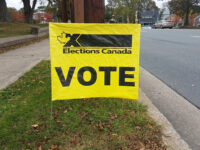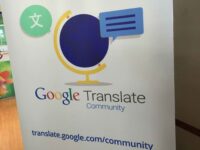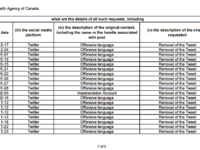The 2025 federal election is now in its second week and the battle for attention and ultimately votes is taking place both online and offline. The enormous influence of online sites such as Twitter, Facebook, TikTok and a handful of others raises real issues about how information spreads, its reliability, and risks of misinformation and disinformation. Aengus Bridgman is the Director of the Media Ecosystem Observatory and an Assistant Professor (Research) at the Max Bell School of Public Policy at McGill University. A contributor to studies on information issues in multiple federal and provincial elections, he is one of Canada’s leading experts on misinformation, digital activism, and the politics of digital media. He joins the Law Bytes podcast to talk about the state of the major platforms in Canada in 2025, how our information ecosystem is vulnerable to misinformation, and what we should be doing about it.
Post Tagged with: "social media"
Canada Plans to Regulate Search and Social Media Use of Artificial Intelligence for Content Moderation and Discoverability
The Canadian government plans to regulate the use of artificial intelligence in search results and when used to prioritize the display of content on search engines and social media services. AI is widely used by both search and social media for a range of purpose that do not involve ChatGPT-style generative AI. For example, Google has identified multiple ways that it uses AI to generate search results, provide translation, and other features, while TikTok uses AI to identify the interests of its users through recommendation engines. The regulation plans are revealed in a letter from ISED Minister François-Philippe Champagne to the Industry committee studying Bill C-27, the privacy reform and AI regulation bill. The government is refusing to disclose the actual text of planned amendments to the bill.
What the CRTC’s New Registration Requirements Mean for Regulating Everything from Online News Services to Podcast Providers
The CRTC last week released the first two of what is likely to become at least a dozen decisions involving the Online Streaming Act (aka Bill C-11). The decision, which attracted considerable commentary over the weekend, involves mandatory registration rules for audio and visual services that include far more than the large streaming services. The Commission says the registrations would give it “de minimis information about online undertakings and their activities in Canada, which would give the Commission an initial understanding of the Canadian online broadcasting landscape and would allow it to communicate with online undertakings.” By contrast, the inclusion of registration requirements for a wide range of undertakings, including some podcast services, online news sites, adult content sites, and social media left some characterizing it as a podcast registry or part of “one of the world’s most repressive online censorship schemes.” So what’s the reality? As is often the case, it is not as bad as critics would suggest, but not nearly as benign as the CRTC would have you believe.
Government Departments Pressure Social Media Sites to Censor News Links, Mean Tweets
The risks associated with the government’s online harms (or online safety) plans is not limited to Canadian Heritage’s credibility gap, which as I’ve recounted has included omitting key information in its public reports on consultations and shocking efforts to exclude contrary voices altogether. A new report, based on the government’s response to a Parliamentary Written Question from Conservative MP Dean Allison (Sessional Paper No. 8555-441-1219) raises new concerns about efforts to censor social media. The written question asked the government for “requests made by the government to social media companies to take down, edit, ban or change in any other way social media content, posts or accounts since January 1, 2020.”
The resulting report is stunning as government departments have in fact pressured the social media companies to remove news links and a range of lawful content including tweets that are said to contain “offensive language” or an “offensive reply.” The use of government power to censor social media posts or news links is exceptionally dangerous and crystallizes the fears of regulatory powers without the necessary due process and oversight that could lead to censorship of lawful content online.











